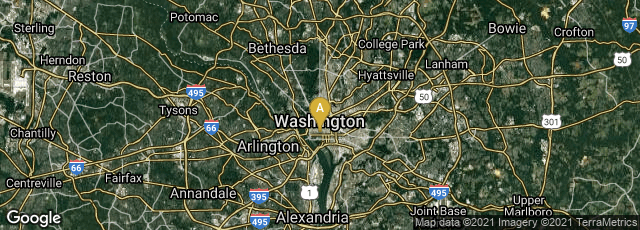

A: Washington, District of Columbia, United States
On June 13, 1971 The New York Times began publication of the The Pentagon Papers. These documents, which were discovered and leaked to the press by U.S. military analyst and activist Daniel Ellsberg, were officially titled United States – Vietnam Relations, 1945–1967: A Study Prepared by the Department of Defense. Twenty-five years later a June 23, 1996 article by R. W. Apple in The New York Times stated that the Pentagon Papers had demonstrated, among other things, that the [Lyndon] Johnson Administration "systematically lied, not only to the public but also to Congress."
"More specifically, the papers revealed that the U.S. had secretly enlarged the scale of the Vietnam War with the bombings of nearby Cambodia and Laos, coastal raids on North Vietnam, and Marine Corps attacks, none of which were reported in the mainstream media.
"For his disclosure of the Pentagon Papers, Ellsberg was initially charged with conspiracy, espionage and theft of government property, but the charges were later dropped after prosecutors investigating the Watergate Scandal soon discovered that the staff members in the Nixon White House had ordered the so-called White House Plumbers to engage in unlawful efforts to discredit Ellsberg. . . .
"President Nixon's first reaction to the publication was that since the study embarrassed the Johnson and Kennedy administrations, not his, he should do nothing. However, Kissinger convinced the president that not opposing publication set a negative precedent for future secrets.[8] The administration argued Ellsberg and Russo were guilty of a felony under the Espionage Act of 1917, because they had no authority to publish classified documents.After failing to persuade the Times to voluntarily cease publication on June 14, Attorney General John N. Mitchell and Nixon obtained a federal court injunction forcing the Times to cease publication after three articles. Times publisher Arthur Ochs Sulzberger said:
Newspapers, as our editorial said this morning, we're really a part of history that should have been made available, considerably longer ago. I just didn't feel there was any breach of national security, in the sense that we were giving secrets to the enemy.
"The newspaper appealed the injunction, and the case New York Times Co. v. United States (403 U.S. 713) quickly rose through the U.S. legal system to the Supreme Court.
"On June 18, 1971, The Washington Post began publishing its own series of articles based upon the Pentagon Papers; Ellsberg gave portions to editor Ben Bradlee. That day, Assistant U.S. Attorney General William Rehnquist asked the Post to cease publication. After the paper refused, Rehnquist sought an injunction in U.S. district court. Judge Murray Gurfein declined to issue such an injunction, writing that "[t]he security of the Nation is not at the ramparts alone. Security also lies in the value of our free institutions. A cantankerous press, an obstinate press, a ubiquitous press must be suffered by those in authority in order to preserve the even greater values of freedom of expression and the right of the people to know."The government appealed that decision, and on June 26 the Supreme Court agreed to hear it jointly with the New York Times case. Fifteen other newspapers received copies of the study and began publishing it.
"On June 30, 1971, the Supreme Court decided, 6–3, that the government failed to meet the heavy burden of proof required for prior restraint injunction. The nine justices wrote nine opinions disagreeing on significant, substantive matters.
Only a free and unrestrained press can effectively expose deception in government. And paramount among the responsibilities of a free press is the duty to prevent any part of the government from deceiving the people and sending them off to distant lands to die of foreign fevers and foreign shot and shell.
—Justice Black
(Wikipedia article on Pentagon Papers, accessed 10-23-2014).
Publications of the Pentagon Papers that resulted from Ellsberg's leaks in 1971 were incomplete and suffered from many quality issues. In June 2011, the entire set of the Pentagon Papers as originally presented to Secretary of Defense Clark Clifford on January 15, 1969 was declassified and publicly released on a website by the National Archives.